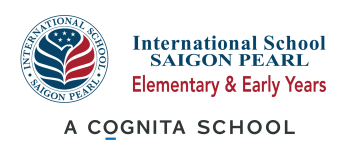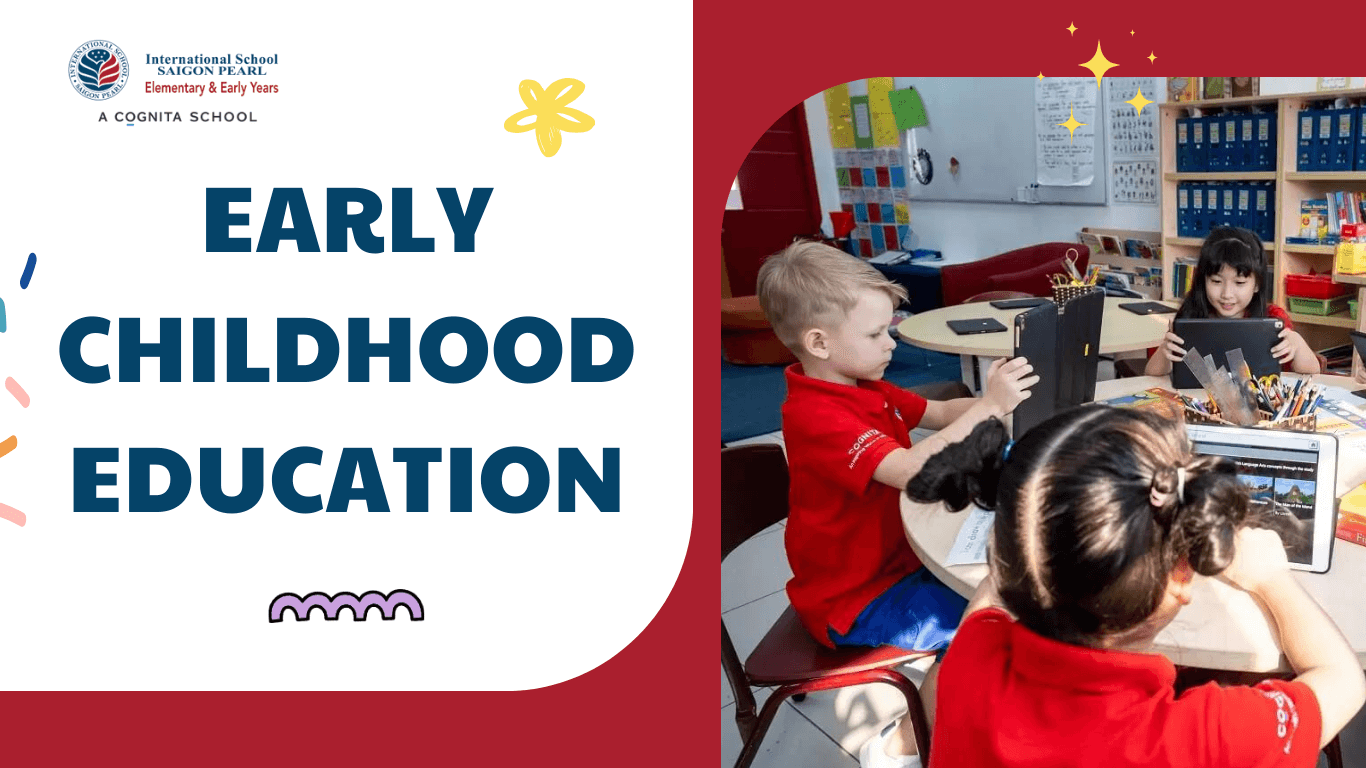In the educational hierarchy, preschool education represents a child’s initial stage of learning, establishing the groundwork for physical, cognitive, intellectual, emotional, and aesthetic development. To gain a better understanding of early childhood education and its impact on children’s future, please refer to the article below with ISSP.
>> Read more: TOP 2 IB schools in Vietnam – International Baccalaureate
Visit International School Saigon Pearl (ISSP) to experience the the curriculum built on IB PYP framework for elementary students today:
What is early childhood education?
During the period from birth to 8 years old, children’s brains are highly sensitive to their surroundings. This stage requires a specialized educational approach to help children learn basic skills. Early childhood education covers the learning that occurs from birth to around eight years old, which is a critical stage in a child’s development. The main objective of early childhood education is to promote holistic development-physical, intellectual, emotional, and social growth.
During this stage, children learn through play and hands-on experiences, which help them develop language skills, creative thinking, communication abilities, and social skills. Early childhood education programs are often designed to stimulate children’s natural curiosity, encourage independence, and build self-confidence.
>> Read more: The EAL program (English as an Additional Language) at International School Saigon Pearl (ISSP)
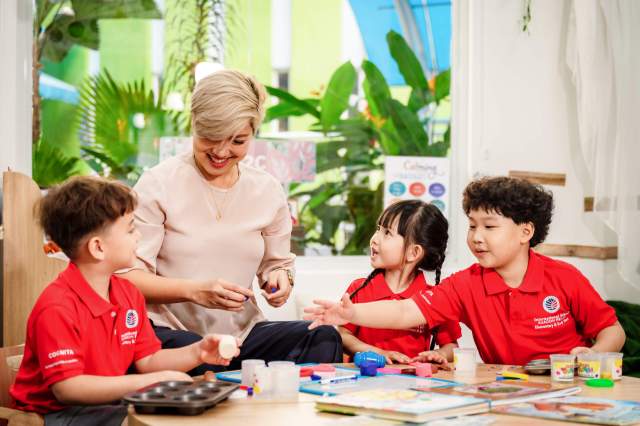
What is early childhood education? (Source: ISSP)
The purpose of early childhood education
The purpose of early childhood education is multifaceted, aimed to support and nurture the comprehensive development of young children. Early childhood education helps them develop the emotional, social and cognitive skills needed to become lifelong learners.
Language and literacy
The purpose of early childhood education in terms of language and literacy is to lay a strong foundation for effective communication and reading skills. During these formative years, children are introduced to the basics of language, including vocabulary, sentence structure, and phonetics, through interactive and engaging activities. This early exposure to language and literacy not only prepares children for academic success but also enhances their ability to express themselves clearly and understand the world around them.
Thinking
The purpose of early childhood education in fostering thinking skills is to encourage critical and creative thinking from a young age. Through play-based learning and problem-solving activities, children are taught to observe, ask questions, and explore different solutions. This helps them develop cognitive abilities such as logical reasoning, decision-making, and the ability to understand cause and effect. By nurturing these thinking skills early on, children become more adept at processing information, setting a strong foundation for lifelong learning.
Self-control
The next purpose of early childhood education in developing self-control is to help children learn how to manage their emotions and behaviors effectively. Through structured activities and guided interactions, children are taught to understand and follow rules, and practice patience. Developing self-control at a young age is crucial for building resilience and fostering positive social interactions.
Self-confidence
Building confidence is also one of the main purposes of preschool education. This helps children develop a strong sense of self-worth and belief in their abilities. Through supportive and nurturing environments, children are encouraged to try new things, take risks, and learn from their experiences. Positive reinforcement from teachers and peers plays a crucial role in this process.
>> Read more: Discover more about Cognita Schools Group in Vietnam – ISSP
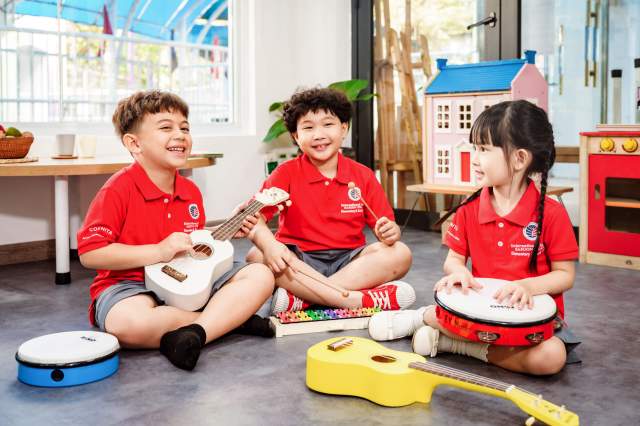
The purpose of early childhood education is multifaceted (Source: ISSP)
Why is early childhood education so important?
Research has shown that high-quality early childhood education programs can have a long-lasting positive impact on children’s lives. According to the National Education Association (NEA), children who receive a high-quality education before the age of 5 experience significant benefits.
Stimulate brain development
A newborn’s brain is about 1/4 the size of an adult’s brain. Incredibly, it will double in size by the child’s first birthday and will have completed 90% of its growth by age 5. During the childhood years, the brain creates millions of synapses every second. These neural connections allow us to move, think, communicate, and understand the world around us. High-quality early childhood education stimulates brain growth, helping to build neural connections that support cognitive, emotional, and social development.
Positively impact children’s lives
Early childhood education is crucial because it positively impacts children’s lives in several significant ways. It enhances cognitive development by stimulating intellectual growth and fostering problem-solving skills. Socially, it helps children develop essential skills like cooperation and empathy through interactions with peers and teachers. Emotionally, it provides a supportive environment where children build self-esteem and resilience.
>> Read more: Vietnamese language program for students at International School Saigon Pearl (ISSP)

The high-quality early childhood education programs have a long-lasting positive impact on children (Source: ISSP)
Identify a high-quality early childhood education program
When selecting a preschool program for your child, it’s important to assess the program’s goals. An early childhood education (ECE) program should be evaluated based on how it meets the child’s developmental needs and supports their overall development. This evaluation will be divided into four main developmental topics for children, including:
Social development
Often said to be the “cradle of social cohesion,” early childhood education endeavors to help children understand themselves as individuals living to others. Beyond imparting foundational skills like sharing and using respectful language such as “please” and “thank you,” as well as contributing to collective efforts like tidying up and following instructions, early childhood education programs also have the potential to nurture children’s awareness of themselves as leaders for a better future.
Emotional Development
A hallmark of a high-quality early childhood education program is its focus on emotional development. Such programs provide a nurturing environment where children feel safe to explore and express their feelings. Teachers are trained to offer sensitive support, fostering secure attachments and positive relationships among children. Through intentional activities and guidance, children learn to recognize and manage their emotions effectively.
Physical Development
A high-quality early childhood education program places significant emphasis on physical development, recognizing its critical role in children’s overall well-being. Such programs offer ample opportunities for children to engage in active play, both indoors and outdoors, fostering the development of gross and fine motor skills. They provide well-equipped play areas with age-appropriate equipment that encourages movement, coordination, and balance.
Intellectual and Academic Development
A high-quality early childhood education program places significant emphasis on physical development, recognizing its critical role in children’s overall well-being. Such programs offer ample opportunities for children to engage in active play, both indoors and outdoors. Provide well-equipped play areas with age-appropriate equipment that encourages movement, coordination, and balance. Furthermore, educators in high-quality programs are trained to observe and support children’s physical development milestones.
>> Read more: What is the importance of physical education? – ISSP
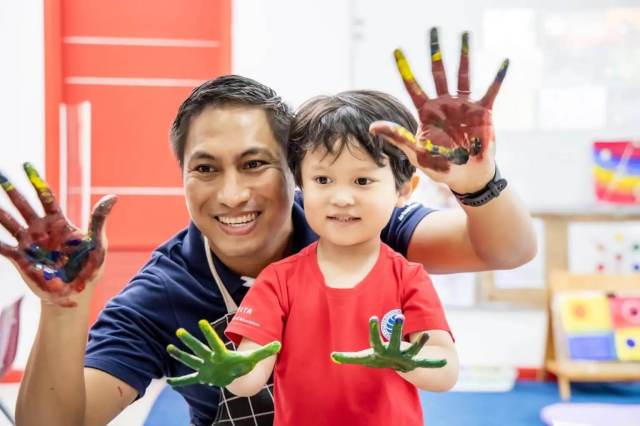
Identify a high-quality early childhood education program (Source: ISSP)
Early childhood program at ISSP
International School Saigon Pearl (ISSP) is an IB preschool and kindergarten for children aged 18 months to 4 years in Binh Thanh District, Ho Chi Minh City. ISSP’s IB program and personalized teaching methods help students reach their full potential and foster a lifelong love of learning. It is also the first preschool in Ho Chi Minh City to be accredited by both the Council of International Schools (CIS) and the New England Association of Schools and Colleges (NEASC), guaranteeing high-quality international teaching standards.
At ISSP’s early childhood program, highly qualified educators use inquiry-based teaching and learning approach to engage children in meaningful learning experiences. Through this learning approach, children are encouraged to explore, experiment, and discover, fostering their natural curiosity and creativity. The curriculum is designed to promote language development, mathematical concepts, scientific inquiry, and social-emotional skills, laying a solid foundation for future academic success.
In addition to academic learning, ISSP recognizes the importance of social and emotional development in young children. Thus, teachers provide a caring and nurturing atmosphere where children feel safe and supported to express themselves, develop empathy, and build positive relationships with their peers.
ISSP frequently hosts training sessions for educators on child psychology, child safety and protection initiatives, and appropriate child behavior. This improves teacher-student interaction and assistance.

Early childhood program at ISSP (Source: ISSP)
ISSP hopes that the above article will help parents have a deep understanding of early childhood education and be able to choose the right school which has high-quality early childhood programs in Vietnam for your children. For more information about specific facilities or programs, parents can explore our preschool international program, and schedule a school tour to experience the educational environment at ISSP.
- Phone number: +84 (028) 2222 7788
- Email: admissions@issp.edu.vn
>> Read more:
